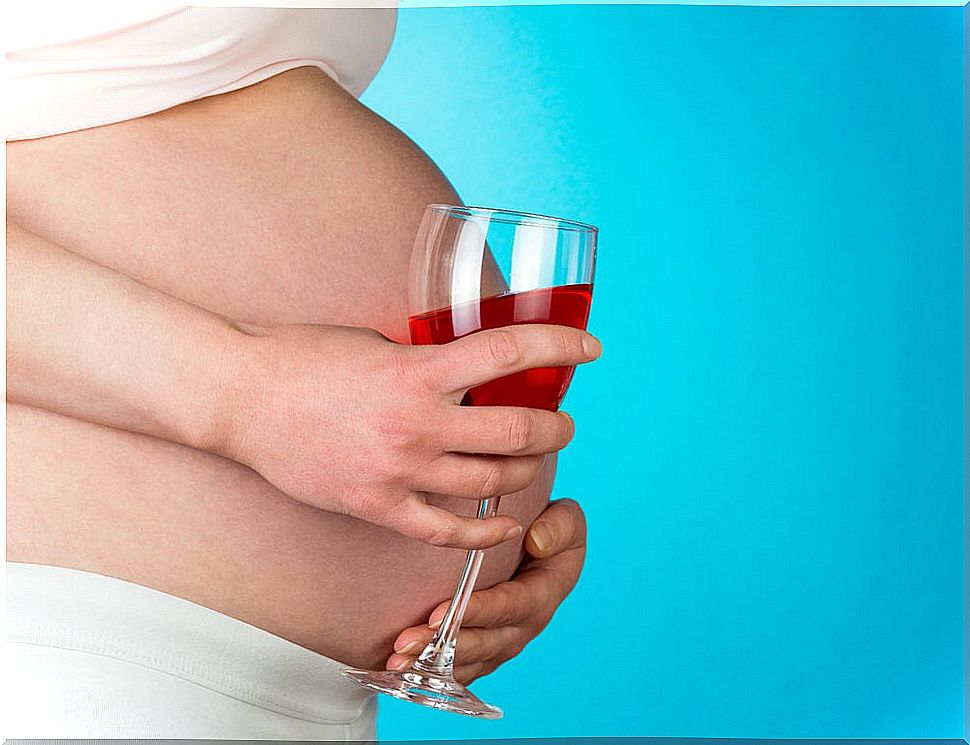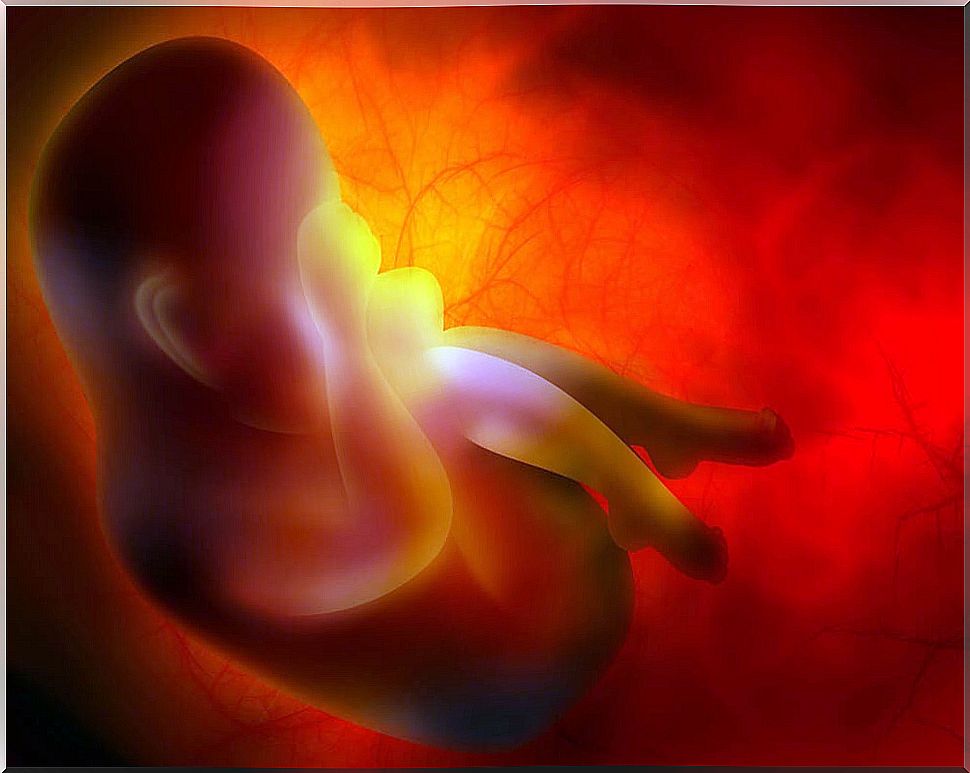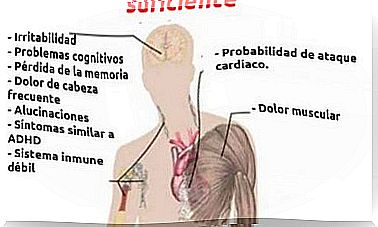The Effects Of Alcohol On The Fetus
A pregnant woman cannot safely drink alcohol, in any amount or at any stage of pregnancy. A single intake can cause irreversible effects on the fetus.

Alcohol is a dangerous drug, even though its distribution is legal. This is particularly true during pregnancy, a stage in which you must be very careful ingesting it. The effects of alcohol on the fetus can be very serious and last a lifetime.
There is a direct relationship between maternal alcoholism and various abnormalities in the morphology and development of the new being. That is why the American College of Obstetrics and Gynecology insists that a pregnant woman should not consume alcohol.
The effects of alcohol on the fetus lead to very serious birth defects. A single ingestion of this drug is capable of causing permanent harm to the child. In addition, it could damage the brain and alter behavior, even up to adolescence.
The dangers of alcohol
The consumption of alcohol always carries risks. First, because this substance is a central nervous system depressant. It has sedative effects, very similar to those produced by barbiturates and benzodiazepines.

On the other hand, alcohol is a toxic substance that, in large quantities, can lead to death. When ingested, it begins to circulate through the blood and reaches all organs. This leads to problems with intracellular respiration , neurotransmitter production, and metabolism.
During pregnancy, the effects of alcohol on the fetus are unpredictable. Therefore, no amount of alcohol can be safely consumed during pregnancy. Similarly, there is also no time during pregnancy when it is safe to take this drug.
This is because the baby’s brain develops throughout pregnancy; from day one to the end of this process. That development can be affected if the mother drinks. Therefore, the prohibition to consume it is absolute.
The effects of alcohol on the fetus
The fetus is totally dependent on the mother. Alcohol in the woman’s blood passes to the baby through the umbilical cord; This transfer can cause from a spontaneous abortion to serious disabilities in the child.
Such abnormalities are known by the generic name of fetal alcohol spectrum disorders (FASD). The main effects of alcohol on the fetus can be the following:
- Malformations on the face: Basically, flat and wide face, small head, minor deformations in the ears, wide and low nasal bridge, Mongoloid eyes, short and pointed nose and fissures in the eyelids.
- Developmental deficits: These babies tend to be underweight and taller than normal. The brain does not evolve normally and this causes, many times, mental and learning deficiencies.
- Damage to the nervous system: They range from minor mental abnormalities to severe mental retardation. Likewise, behavioral problems and permanent alterations in motor functions may appear.
- Deformations: On some occasions, larger structural anomalies appear. For example, malformations of the heart, skeletal, eye, kidney, genital problems or deformation of the limbs.

Beyond what has been explained, there are also psychological consequences of alcohol consumption in pregnancy. Children of mothers who drink alcohol tend to be more irritable, restless, and scattered. Up to 20% of cases of deformity in children at birth are due to alcohol consumption during pregnancy.
Prevent and avoid
The effects of alcohol on the fetus are known to be very serious. The good news is that this is a situation that can be avoided or prevented. If a woman is planning to carry on a pregnancy, she must be aware that she will not be able to drink alcohol during these months; under no circumstances and in no amount.
Some women believe that there will be no consequences if they drink low alcohol drinks; This is false. As already mentioned, even a small amount of this substance can affect a child for life. The effects of this damage are irreversible.
The problem is that an adult who consumes alcoholic beverages has developed a certain tolerance to these types of substances. Your body assimilates and then eliminates that poison in a relatively short time. The fetus, on the other hand, takes twice as long to carry out this process.
Ultimately, if a woman has alcohol problems, she should avoid becoming pregnant. If you are already pregnant and discover that you have a drinking problem, you need to seek help immediately, as your life and that of your child are at risk.









